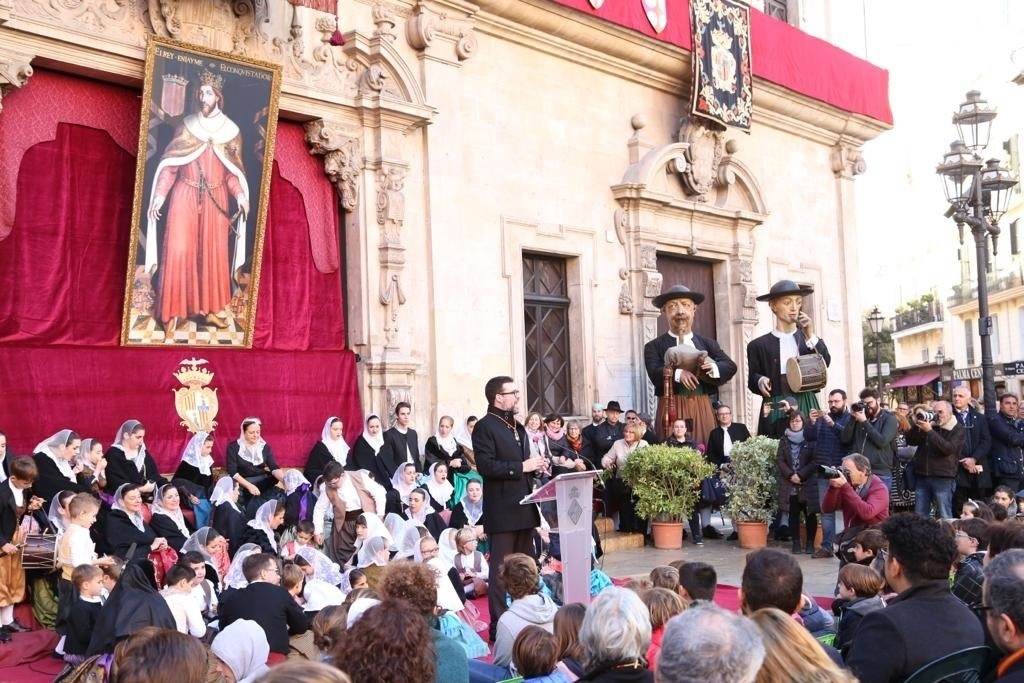The People's Party (PP) and Vox have definitively de-Catalanized the Diada de Mallorca. With their majority in the administrative council for the Balearic Island, the parties of the Spanish right and far-right have approved the change in the official date of the island's own holiday: from December 31st to September 12th. The opposition parties (PSIB, Més per Mallorca and El PI) voted against the change and accused the parties of a lack of historical rigour, in addition to the usual anti-Catalanism that has characterized them in the months since the start of the legislature. Against that, the councillor for the presidency, Antoni Fuster (PP), argued that the decision has the support of 28 of the 53 Mallorcan municipalities.
The Catalan word diada refers to a day of major celebration, and the largest of these are the national or territorial festive days celebrated throughout the Catalan-speaking lands. The Diada de Mallorca has traditionally - and officially, since 2016 - been celebrated on December 31st to commemorate the entry of king Jaume I into Madina Mayorqa on the last day of the year 1229 - the founding date of what today is understood as the Mallorcan people, with the entry of Catholicism and Catalanism to the island. Now, however, the Spanish nationalist parties have decided to change the date and celebrate it officially on September 12th, supposedly to commemorate the succession of Jaume II and the beginning of the kingdom of Mallorca - when the new king confirmed the Franchise Charter.
Fuster made reference to three historians' reports that support the change of date and pointed out that on September 12th, 1276 "the rights and liberties of the Kingdom of Mallorca were confirmed", while December 31st is "the celebration that is held by the city of Palma, without there being any sense in celebrating the two dates at the same time". To approach it from another argument, one of the documents indicates that on December 31st "people are thinking more about New Year's Eve".
The councillor also recognized that the change responds to the fulfillment of one of the points of the government agreement made between the PP and Vox, which "makes solid and stable" governance possible. Thus, Vox councillor David Gil argued that "it is not an act of political arbitrariness" and that it comes from "the majority of the Mallorcan population represented by their councils" - in reference to the support of 28 municipalities, just over half of the total. Gil added that for the far-right party, celebrating the Diada on September 12th "does not only involve remembering the past, but pacifying the present and projecting the future" and criticized "the manipulation of history with ideological purposes" by parts of the opposition groups that reject the proposal.
The lack of historical rigour from the PP and Vox
None of these arguments convinced the opposition. For his part, the Socialist councillor Javier de Juan considered that the reasons given are "very poor and poorly carried out", at the same time as he criticized that the consultation of the town councils did not go to the municipal plenums where it would have been debated with the rest of the political parties. Thus, he denounced the governing officials for using their "absolute power" to change the date and remarked that "the idea they have of Mallorca is very poor and limited".
The spokesperson for Més per Mallorca, Jaume Alzamora, called the three reports "simple opinion articles" and affirmed that the change "is only justified as a political decision". In the same way, he criticized "the personal obsession to recover past times" of the island's president, Llorenç Galmés. Finally, the spokesperson of El PI, Antoni Salas, criticised how the change was made, and asked for the creation of a committee of experts incorporating institutions, associations and the University of the Balearic Islands (UIB). In fact, he asked that the consultation be repeated in the councils because "28 municipalities out of 53 is not a consensus".

